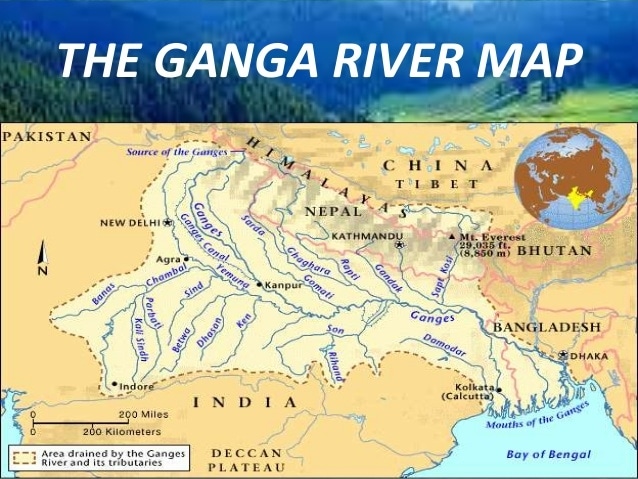Biodiversity & Environment
Initiative on Making Water Sensitive Cities in Ganga Basin
- 28 Jul 2021
- 4 min read
Why in News
Recently, a new capacity building initiative on ‘Making water sensitive cities in Ganga basin’ was launched by the National Mission for Clean Ganga (NMCG) in association with Centre for Science and Environment (CSE).
Key Points
- About the Initiative:
- Aim: The aim of the program is capacity building and action research for promoting sustainable urban water management for improved river health in Ganga basin cities.
- Key Focus Areas:
- Water Sensitive Urban Design and Planning.
- Urban Water Efficiency and Conservation.
- Decentralized Wastewater Treatment and Local Reuse.
- Urban Groundwater Management.
- Urban Water Bodies/Lake Management.
- Convergence Efforts:
- This initiative is aimed to ensure convergence of the Namami Gange Mission with national flagship urban missions.
- AMRUT, Smart Cities, Swachh Bharat Mission, HRIDAY, NULM.
- Atal Bhujal Yojana, Jal Jeevan Mission, Jal Shakti Abhiyan at state/city level across Ganga basin states.
- This initiative is aimed to ensure convergence of the Namami Gange Mission with national flagship urban missions.
- Stakeholders: The program will engage all the stakeholders which includes:
- SPMGs (State Program Management Group, Namami Gange), Municipal corporations, Technical & research constants, international organizations and local grassroot communities.
- Water Sensitive Urban Design and Planning: It is an emerging urban development paradigm aimed to minimise hydrological impacts of urban development on the environment. This includes:
- The method of planning and designing urban areas for optimum utilisation of water.
- Reducing the harm caused to our rivers and creeks.
- Focuses on the management of entire water systems (drinking water, storm water run-off, waterway health, sewerage treatment and recycling).
- Other Related Initiatives:
- There is a paradigm shift in planning for River Cities.
- The “River Cities Alliance” will provide a unique platform for river cities to collaborate for collectively achieving river rejuvenation through sustainable development and capacity building.
- The Jal Shakti Ministry’s ‘Catch the Rain' initiative launched for rainwater harvesting has nudged all stake-holders to create Rain Water Harvesting Structures (RWHS) suitable for the climatic conditions and subsoil strata to store rainwater.
- There is a paradigm shift in planning for River Cities.
Way Forward
- The intensity of rain has increased over the years but the number of rainy days has reduced, making water management a crucial subject.
- There is a need to use the traditional knowledge of rain water harvesting.
- For examples of Alhar - Pyne system of Bihar, wells in forts of Rajasthan and Cascade tanks of South India etc.
- There is a need for a framework for integration between Urban Built Form including landscape and urban water cycle.
- Cities have largely been held responsible for the deteriorated state of rivers, and therefore, will need to play a vital role in the rejuvenation efforts as well.
- There is a need to mainstream river sensitive approaches while planning for the cities.







